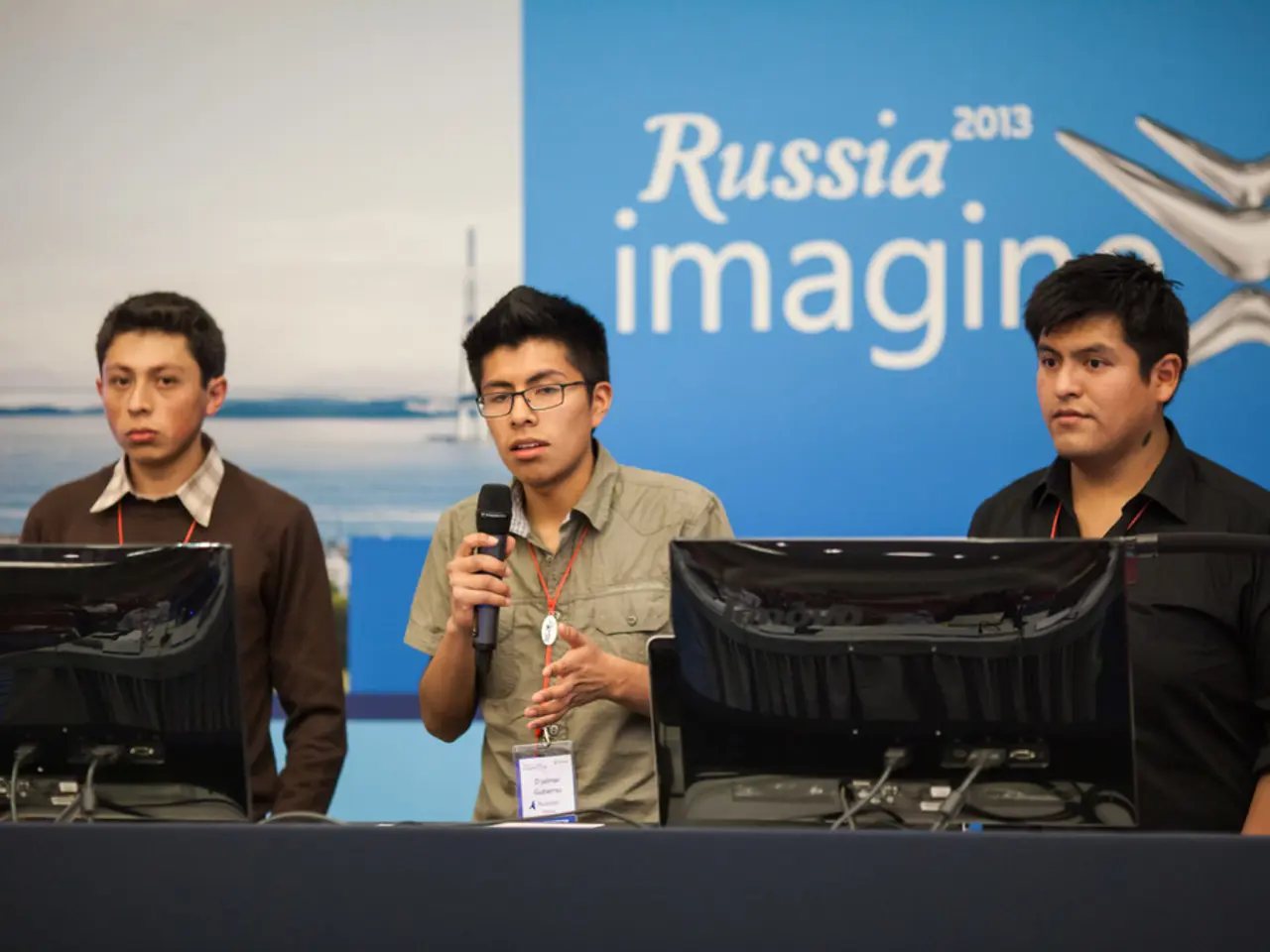Trump ponders potential escalation of chip sales to China with Nvidia's aid
In a move that has raised legal and strategic questions, the Trump administration has announced a deal that allows Nvidia and AMD to sell advanced artificial intelligence (AI) chips to China, with the U.S. government securing a significant percentage of the sales revenue.
The deal, which has been described as highly unusual and unprecedented, has been met with criticism from various quarters. Experts have noted that the legality of the U.S. government taking a cut of private companies' export revenues is unprecedented, raising concerns about national security impacts and broader implications for U.S.-China trade relations and technology security.
The deal represents a significant policy shift or exception, as earlier in 2025, the U.S. Administration had banned the sale to China of specific advanced AI chips, including Nvidia's H20 chip and AMD's MI301 chip. The H20 chip, based on Nvidia's older architecture, is now reportedly under consideration for a new deal that would allow the company to sell chips based on its latest Blackwell models to China.
Meanwhile, the U.S. would also take 15% of AMD's revenue for its MI308 chip sales in China, as part of the same deal. This arrangement has sparked tension between export controls and commercial interests in the AI chip market.
The controversy is not limited to the tech sector. Pakistan, a country seen as a useful strategic role by the U.S., has been actively courting Washington, with counterterrorism cooperation, outreach to business figures close to Trump, and deals covering energy, critical minerals, and cryptocurrencies forming part of its strategy. However, Pakistani officials and analysts warn that Trump could still turn on Islamabad, especially if he tries to patch things up with New Delhi.
In geopolitical circles, the deal comes as U.S. and Chinese officials continue trade negotiations that the president hopes will lead to a summit with China's leader Xi Jinping. The deal has also sparked concerns in Europe, with European leaders urging Washington to ratchet up sanctions pressure on Russia ahead of Trump's meeting with Vladimir Putin in Alaska on Friday.
Amidst this global political landscape, the deal has also sparked internal debates within the U.S. administration. Some national security officials within the administration are considering resigning over signals that Trump would allow China to obtain advanced technology from the U.S. Silicon Valley investor Michael Moritz, on the other hand, believes Intel must stand up to Trump's attacks on its chief executive.
In a bid to maintain public order, Trump deployed the National Guard in Washington and took control of the city's police force over what he called a "public safety emergency." As the deal unfolds, it remains to be seen how it will impact the tech industry, U.S.-China relations, and global geopolitics.
References: [1] CNBC (2025). U.S. Government to Take Cut of Nvidia and AMD's Revenue from AI Chip Sales to China. [online] Available at: https://www.cnbc.com/2025/04/15/us-government-to-take-cut-of-nvidia-and-amds-revenue-from-ai-chip-sales-to-china.html
[2] Reuters (2025). U.S. Bans Sale of Advanced AI Chips to China, Including Nvidia's H20 and AMD's MI301. [online] Available at: https://www.reuters.com/2025/01/15/us-bans-sale-of-advanced-ai-chips-to-china-including-nvidias-h20-and-amds-mi301-idUSKBN20S09R
- The deal between Nvidia and AMD to sell advanced artificial-intelligence chips to China, with the U.S. government securing a percentage of the sales revenue, has been met with criticism due to its unprecedented nature and potential national security impacts.
- The controversial deal represents an exception to the U.S. Administration's earlier ban on the sale to China of specific advanced AI chips, including Nvidia's H20 chip and AMD's MI301 chip.
- The H20 chip, based on Nvidia's older architecture, is now under consideration for a new deal that would allow the company to sell chips based on its latest Blackwell models to China.
- The deal has sparked tension between export controls and commercial interests in the AI chip market, as the U.S. would also take 15% of AMD's revenue for its MI308 chip sales in China, as part of the same agreement.
- The controversy extends beyond the tech industry, as the U.S. is also considering strategic partnerships with Pakistan, raising questions about U.S.-China relations, global geopolitics, and the role of artificial-intelligence technology in these relationships.




